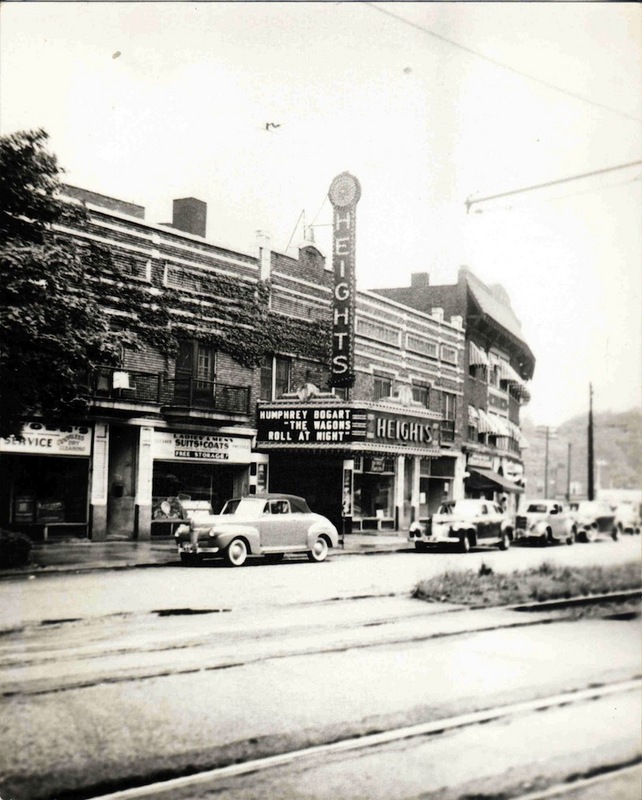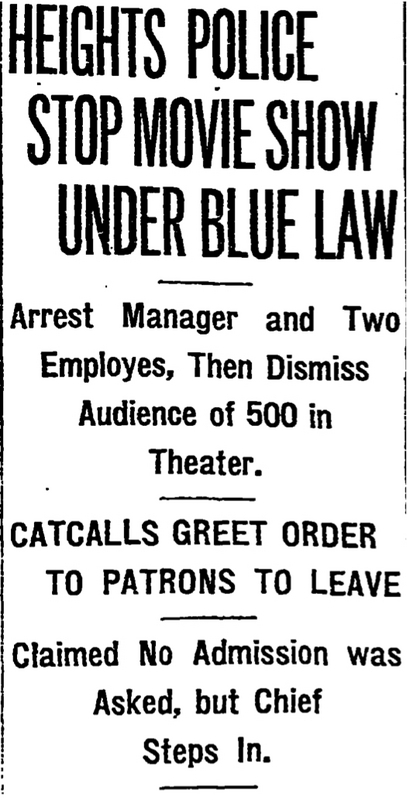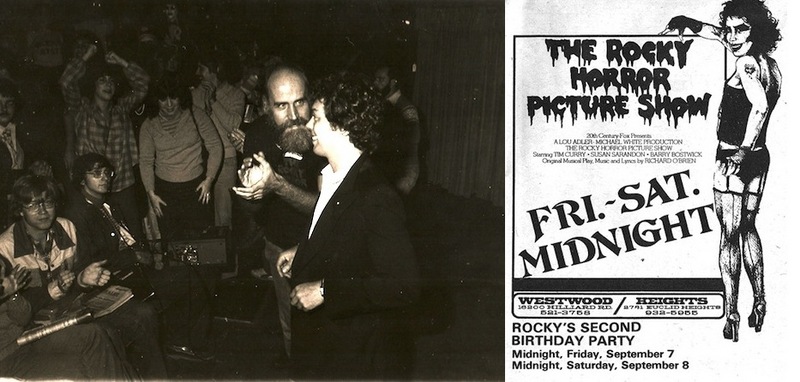Heights Art Theater

A dramatic police raid. A community up in arms. A man taking his fight for justice all the way to the Supreme Court. These events sound like the plot of a Hollywood movie, but they actually in Cleveland Heights. Cleveland Heights police raided a screening of the French film "Les Amants" ("The Lovers") at the Heights Art Theater. The net effect was an obscenity conviction for theater manager Nico Jacobellis and a five-year legal battle. The movie's offenses: a risqué theme and one two-second shot of a female breast!
Controversy over "Les Amants" (directed by the legendary Louis Malle) was not the first time the movie theater on Euclid Heights Boulevard was the center of a community-wide moral debate. Nor was it the first time the theater had been raided by police. In 1922, just three years after it opened, the (originally named) Heights Theater got into trouble for showing a movie on a Sunday afternoon. In the middle of the film, Cleveland Heights police arrested two managers and the theater's projectionist, clearing the theater of 500 patrons to a chorus of boos and catcalls. A month later, a jury convicted the three of breaking Ohio's "blue law" which prohibited "theatrical or dramatic performances," as well as all other forms of commercial entertainment, on the Sabbath. Cleveland Heights City Council voted to allow Sunday movies in 1931, on the same day that Ohio's statewide "blue law" was repealed. More than 9,000 Cleveland Heights residents signed a petition demanding the change.
In 1954, the Heights Theater became the Heights Art Theater, dedicated to showing "Only distinguished motion pictures of international prestige." From a publicity perspective "Les Amants" was the theater's peak. The movie, which tells the story of a married woman's love triangle, had been highly acclaimed in Europe, though the Cleveland Plain Dealer's review called it "shockingly nasty." On November 13, 1959, Chief of Cleveland Heights Police Edward Gaffney, upon hearing a report from the city's law director and the Cuyahoga County prosecutor, who had attended a showing of "Les Amants," ordered police to clear the theater, confiscate the film, and arrest Nico Jacobellis. After a lengthy trial that featured dueling film critics, clergymen, and university professors, Jacobellis was found guilty of possessing and exhibiting an obscene film and fined $2,500. Throughout the trial, Jacobellis, an Italian immigrant who studied and taught film at Western Reserve University, insisted that he was just following the orders of the theater's owners who had screened the film in other cities without incident.
Jacobellis' attorneys appealed the case all the way to the U.S. Supreme Court. In June 1964 the Supreme Court ruled on Jacobellis v. Ohio, reversing the conviction in a 6-2 decision. The ruling suggested that national standards of decency–and not those of individual local communities–mattered most, though this principle would come into question in later Supreme Court decisions. One of the Supreme Court's most famous quotes also emerged from the decision, when justice Potter Stewart noted that "I know [pornography] when I see it, and the motion picture involved in this case is not that."
In the 1970s and 1980s, the Heights Art Theater went on to show movies considerably racier than "Les Amants" and "Behind the Green Door." However, no further legal action was ever taken against the theater. In 1984, the Heights Art Theater changed its name to the Coventry Theater and later to the Centrum, neither of which showed X-rated films. Lacking proximate parking and unable to compete with large multiplexes, the theater screened its last film in 2003. Nearby parking, comfy seats, expensive projection systems, and dozens of screens accomplished what two police raids and a series of legal fights could not. Today, a church occupies the main floor, while an upstairs section includes a hookah parlor.
Audio
Images









